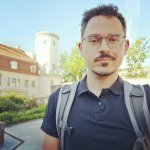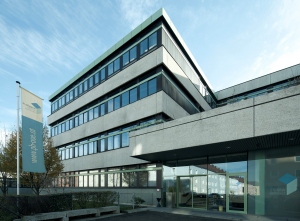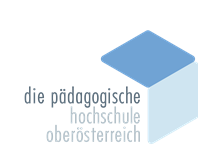
Daniel Dörler
New partners in the CSNA
No less than 4 new partner institutions have already joined the Citizen Science Network Austria this year. You can see all partner in our partner list.
Open calls on Österreich forscht
Many new calls have been added to our "open calls" page. Take a look, maybe you will find a call for your project!
WTZ Workshop open educational resources
Not only since Corona have more and more people been asking themselves the question: How can I design a presentation so that it is an open educational resource? In our new workshop in July you will learn exactly that. Swing by and sign up while there are still places available.
Universum Spezial with Österreich forscht
We are very pleased to present the Österreich forscht platform this evening in an Universum Spezial "One World - Millions of Species"! Take a look and learn how you can protect biodiversity in Austria yourself.
Pädagogische Hochschule Oberösterreich
The University of Upper Austria the second biggest teacher training institution in the country. It provides teacher training for primary school teachers, vocational school teachers, and secondary school teachers. The university offers Bachelor’s and Master’s degrees and is also responsible for providing continuing education programmes for employed teachers of all levels and school types in the region of Upper Austria.
The University of Education Upper Austria sees a high potential in citizen science, especially in the field of teacher education, but also beyond. For this reason, it was decided to join the Citizen Science Network Austria as an important step for future developments in teaching and research at the university.
Citizen Science Lecture Series - Sculptured Resin Bee
Next week, the last lecture on the Sculptured Resin Bee project in our citizen science lecture series will take place. In the current blog post you will find more information and the link to the registration.
10 years of senseBox
"10 years of senseBox" is the title of the next presentation in our Citizen Science Seminar-series. You can find all the details about this presentation and the link to the free registration in the current blog post.
Proceedings ACSC 2020
26 short articles about the ambition and meaning of citizen science are waiting for you in the new blog post. All of them were written in the course of the Austrian Citizen Science Conference 2020. We look forward to numerous readers!
Citizen Science Lecture Series - new lecture
Tomorrow is the next lecture in our citizen science lecture series. Gernot Neuwirth from Naturschutzbund Österreich will tell us all about naturbeobachtung.at. You can still register for the lecture until 21.04.2021 at 08:00 in the morning. You can find the link to the registration as well as a short summary of the lecture in the current blog post.
New lecture in citizen science lecture series
The next lecture in our citizen science lecture series has been announced. In the current blog post you can find all the information about this lecture, which will take place on 21 April.



